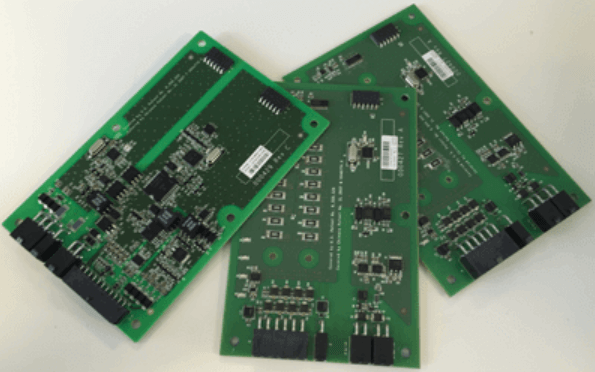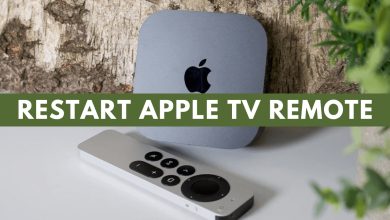Lithium Battery Management Systems (BMS) play a crucial role in maximizing the performance and efficiency of lithium-ion batteries. As the demand for high-capacity, long-lasting rechargeable batteries continues to grow, efficient management of these energy storage devices becomes paramount. This article will explore the components, functions, benefits, and challenges associated with lithium battery management systems. By the end, you’ll clearly understand how BMS can optimize the performance and increase the lifespan of lithium-ion batteries.
Contents
- Definition of Lithium Battery Management Systems (BMS)
- Importance of BMS in maximizing performance and efficiency
- Components of a Lithium Battery Management System
- Battery monitoring unit (BMU)
- Voltage and current measurement
- Temperature sensing
- State of charge (SOC) estimation
- Functions of a Lithium Battery Management System
- Cell balancing
- Overcharge and over-discharge protection
- Temperature control
- Fault diagnosis and safety mechanisms
- Benefits of Using a Lithium Battery Management System
- Extended battery life
- Enhanced safety
- Improved performance and efficiency
- Choosing the Right Lithium Battery Management System
- Compatibility with battery chemistry and voltage
- Scalability and expandability
- Integration with other energy storage systems
- Installation and Maintenance of a Lithium Battery Management System
- Proper installation guidelines
- Routine maintenance and monitoring
- Advances in Lithium Battery Management Systems
- Intelligent BMS with artificial intelligence (AI)
- Wireless connectivity and remote monitoring
- Predictive Analytics for battery health management
- Conclusion
Definition of Lithium Battery Management Systems (BMS)
A Lithium Battery Management System (BMS) is an electronic control unit that oversees and regulates lithium-ion batteries’ charging, discharging, and overall operation. It ensures the safe and efficient utilization of battery energy while preventing overcharging, over-discharging, and overheating hazards.
Importance of BMS in maximizing performance and efficiency
Efficient management of lithium-ion batteries is vital for maximizing their performance and overall efficiency. Without a BMS, lithium batteries can suffer from imbalanced cells, reduced capacity, and shortened lifespan. A well-designed BMS helps address these issues by monitoring and controlling critical parameters, resulting in optimized battery performance and extended cycle life. Do you want more details? Please Check it out.
Components of a Lithium Battery Management System
A lithium battery management system comprises several vital components that ensure proper battery operation and safety.
Battery monitoring unit (BMU)
The Battery Monitoring Unit (BMU) is the central control module of a BMS. It provides security by collecting data from various sensors and communicating with other system components to make informed battery operation and protection decisions.
Voltage and current measurement
Accurate voltage and current measurements are essential for understanding the battery’s state. Voltage sensors monitor the battery’s charge level, while current sensors provide information about energy flow during charging and discharging cycles.
Temperature sensing
Monitoring the temperature of lithium-ion batteries is crucial to prevent thermal runaway and other hazardous conditions. Temperature sensors integrated into the BMS continuously monitor the battery’s temperature and trigger protective measures if it exceeds safe limits.
State of charge (SOC) estimation
Estimating the State of Charge (SOC) is essential for determining the available energy in the battery. Based on voltage, current, and temperature measurements, SOC estimation algorithms provide accurate information about the battery’s energy level.
Functions of a Lithium Battery Management System
A Lithium Battery Management System performs several essential functions to ensure lithium-ion batteries’ optimal operation and safety.
Cell balancing
Cell balancing ensures that each cell within a battery pack is charged and discharged evenly. By equalizing the charge levels of all cells, cell balancing enhances overall battery performance and extends its lifespan.
Overcharge and over-discharge protection
Preventing overcharge and over-discharge is critical for maintaining battery health and safety. The BMS continuously monitors the battery voltage and triggers protective measures, such as disconnecting the battery, to prevent these harmful conditions.
Temperature control
Maintaining the temperature of lithium-ion batteries within safe limits is crucial for their longevity and safety. The BMS monitors the battery temperature and, if necessary, activates cooling or heating mechanisms to keep the battery within the optimal temperature range.
Fault diagnosis and safety mechanisms
A robust BMS is equipped with real-time fault diagnosis capabilities to identify and address potential issues. Safety mechanisms, such as short-circuit protection and current limiting, ensure the overall safety of the battery system.
Benefits of Using a Lithium Battery Management System
Implementing a Lithium Battery Management System offers several key benefits in terms of battery performance and safety.
Extended battery life
A well-designed BMS with proper cell balancing and protection mechanisms helps prolong the lifespan of lithium-ion batteries. By preventing overcharging, over-discharging, and cell imbalances, a BMS ensures that the battery operates within its optimal range, leading to extended cycle life.
Enhanced safety
Safety is a top priority when working with lithium-ion batteries. A BMS provides comprehensive protection against potential hazards, such as overvoltage, overcurrent, and excessive temperature. These safety measures minimize the risk of battery failure, thermal runaway, and fire incidents.
Improved performance and efficiency
Efficient battery management translates into improved overall battery performance and higher energy efficiency. A BMS optimizes the charging and discharging cycles, ensuring the battery operates at its maximum capacity while minimizing energy losses.
Choosing the Right Lithium Battery Management System
Selecting the appropriate Lithium Battery Management System is crucial to maximizing the performance and efficiency of the battery system.
Compatibility with battery chemistry and voltage
Different lithium-ion chemistries and battery voltages require specific management strategies. When choosing a BMS, it is essential to ensure compatibility with the battery chemistry and voltage to achieve optimal performance and safety.
Scalability and expandability
The BMS should be scalable to accommodate different battery pack sizes and configurations. Additionally, expanding the system’s capabilities, such as integrating with renewable energy sources or adding wireless connectivity, allows for future upgrades and adaptability.
Integration with other energy storage systems
In applications where lithium-ion batteries work with other energy storage systems, such as solar or wind power, seamless integration with the existing infrastructure is essential. Compatibility and communication protocols should be considered during the BMS selection process.
Installation and Maintenance of a Lithium Battery Management System

Proper installation and maintenance of a Lithium Battery Management System are critical for optimal performance and longevity.
Proper installation guidelines
Following the manufacturer’s installation guidelines and recommended wiring practices is essential to ensure the BMS functions correctly. Proper electrical insulation and secure connections should be maintained to minimize the risk of electrical faults.
Routine maintenance and monitoring
Regular maintenance and monitoring of the BMS and battery system help detect potential issues early. This includes inspecting sensor connections, checking for firmware updates, and analyzing battery performance data. Routine maintenance ensures that the BMS operates at its full potential and identifies any anomalies or degradation in battery performance.
Advances in Lithium Battery Management Systems
The field of Lithium Battery Management Systems continues to evolve, with advancements aimed at further improving performance and functionality.
Intelligent BMS with artificial intelligence (AI)
Intelligent BMS systems leverage artificial intelligence algorithms to optimize battery performance and efficiency. These systems learn from battery usage patterns and dynamically adjust the charging and discharging algorithms to maximize battery life and overall system performance.
Wireless connectivity and remote monitoring
Wireless connectivity enables remote monitoring and control of the battery system, providing real-time data on battery health, performance, and status. This allows for proactive maintenance, timely fault detection, and efficient system management.
Predictive Analytics for battery health management
By analyzing historical data and implementing predictive analytics algorithms, BMS systems can estimate battery health and remaining lifespan. This information allows for proactively replacing deteriorating battery cells or packs, reducing downtime, and optimizing overall system performance.
Conclusion
Lithium Battery Management Systems play a vital role in maximizing the performance and efficiency of lithium-ion batteries. With their ability to monitor, control, and protect battery systems, BMS ensures optimal energy utilization, enhanced safety, and extended battery life. The continuous advancements in BMS technology, such as intelligent algorithms and wireless connectivity, further improve their capabilities. As the demand for efficient energy storage solutions continues to grow, the importance of Lithium Battery Management Systems in achieving optimal performance and efficiency cannot be overstated.



